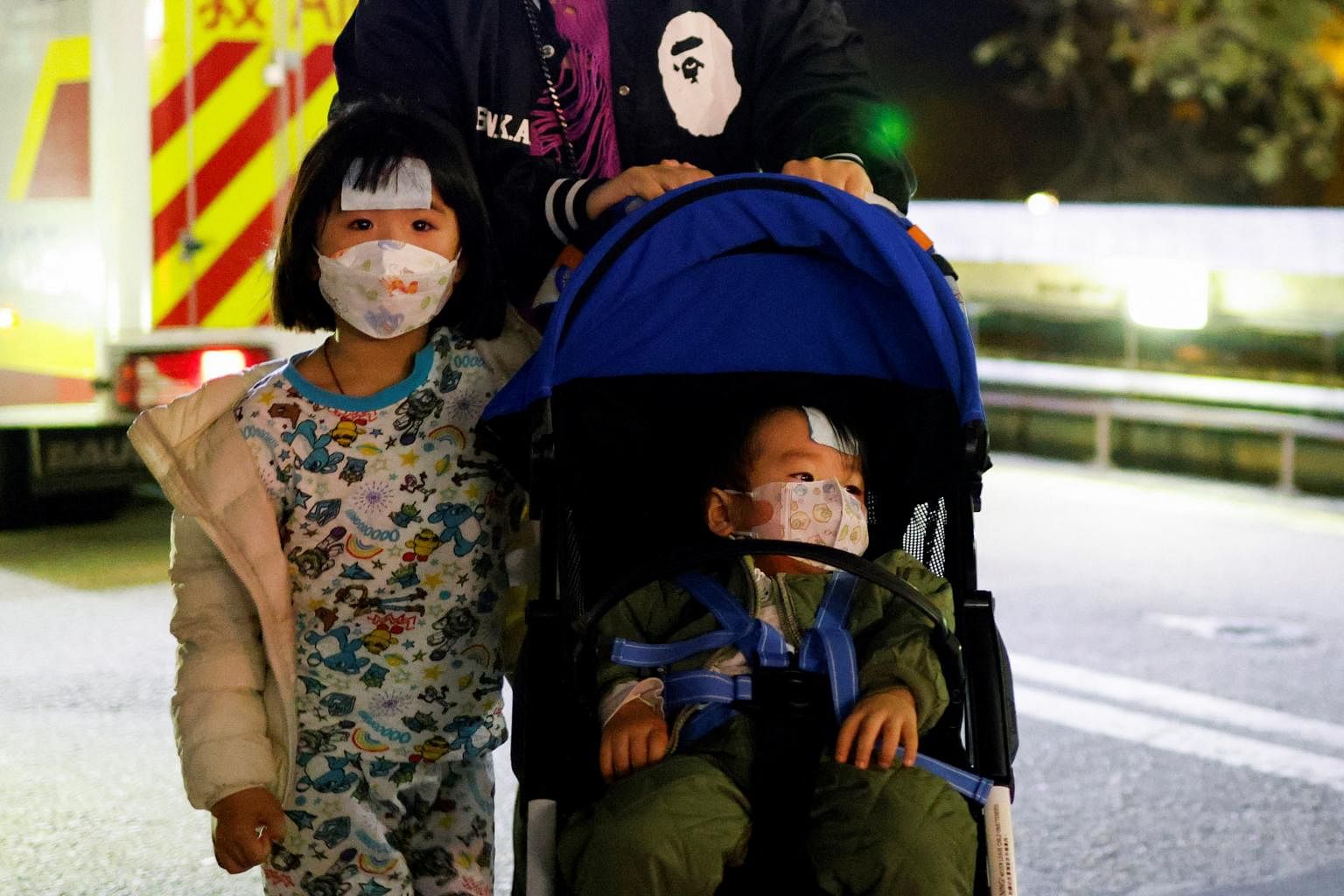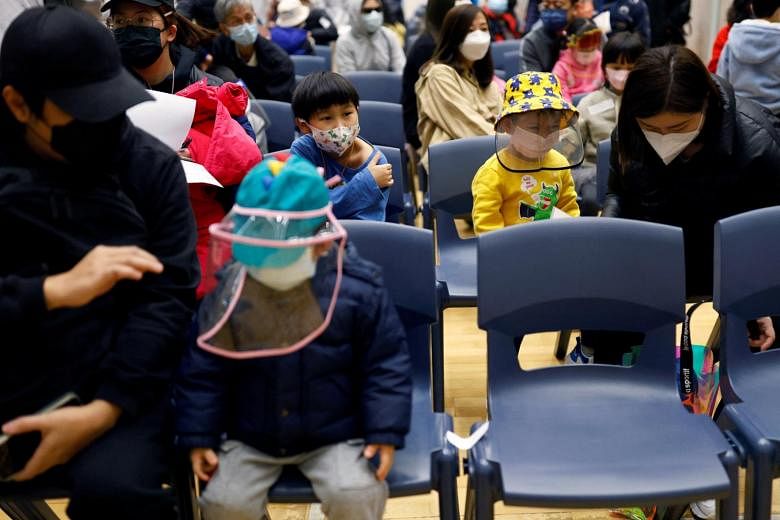HONG KONG (BLOOMBERG) - Three children under the age of five have died in Hong Kong's spiralling Covid outbreak, a disproportionately large number that has local parents anxious, though paediatricians say it could just be a grim coincidence.
While the numbers are too low to draw any conclusions, according to experts, the children - aged 11 months, three and four years old - make up nearly 0.3 per cent of the 1,153 fatalities that have occurred in this wave of infections. None had known underlying health conditions.
Their deaths are being investigated by the coroner, according to the Hospital Authority.
The childhood deaths are higher than in countries such as Australia and Singapore, which originally adhered to the same zero-tolerance policy as Hong Kong.
Australia has more than 5,300 Covid-19 fatalities, including six in children. No one under age 20 has died from the virus in Singapore during the past year.
In the United States, where more than 950,000 people have died from the virus, children under the age of five years account for 466 - or around 0.04 per cent.
While the situation has alarmed parents, the majority of children who contract Covid-19 experience mild symptoms and recover uneventfully in seven to 10 days, said Dr Kwan Yat-wah, a paediatric consultant at Princess Margaret Hospital.
He called on parents to get their children vaccinated as soon as they qualify and to monitor them for symptoms such as a shortness of breath, convulsions, heart pains and a quickening pulse, all indications that they should be seen by a doctor immediately.
With nearly 2,000 children hospitalised because of the virus in Hong Kong, parents also are fretting about a policy that does not allow healthy parents to stay with their sick children due to lack of space.
The latest outbreak, which added more than 300,000 new infections since January, has stretched the city's health care system to the limit.
Infants and toddlers up to age two years account for 40 per cent of the admissions, as well as 30 of the 49 children in intensive care, according to data from the Hospital Authority. Those between five and 11 years old make up the second largest age group, at 28 per cent of the total.
It is not the first time that children led in Covid-19 hospitalisations.
One district in South Africa's capital of Pretoria also saw an early and unexpected surge of seriously ill kids during its omicron outbreak in late 2021.
"We were admitting lots of children and we didn't even know where to put them," said paediatric specialist Ute Feucht from the Tshwane district who co-authored a paper on Covid-19 infections in children. "We were not prepared for such a big paediatric load."
Hospital admissions for children preceded those for adults in the most recent outbreak, while in the past three waves in South Africa the Covid-19 wards usually filled with adults first, she said. Still, nearly 90 per cent of the 138 children in the study needed only standard care. Four died, and all had other conditions, such as HIV, according to the paper published in the journal Lancet.
In Hong Kong, the authorities stopped hospitalising everyone who tested positive for the virus last month as the numbers were surging due to the highly-transmissible Omicron variant, and children who are in stable condition are now allowed to recuperate at home.

Those with more serious cases are admitted to paediatric isolation facilities in public hospitals, and their parents are not allowed to stay with them unless they are also infected. Exceptions may be possible, for example in the case of a breastfeeding mother.
Despite the relaxation of hospitalisation rules, the 1,939 children with Covid-19 in Hong Kong's health care facilities currently is almost double the cumulative total from previous outbreaks, the Hospital Authority said.
The number is likely to rise as the virus continues to spread in the once vibrant financial hub, which is now considering some type of a lockdown to get the flareup under control. A compulsory universal testing campaign for the entire city planned for later this month is likely to uncover significantly more infections.
Vaccinations were approved for children as young as five years in January, then the age limit was lowered to three in February. About one-third of children aged three to 11 received their first shots as of March 1, according to government data.
In times of rampant disease transmission, some people who are infected with Covid-19 will die of causes that are not related to the virus, said Dr Jonas Ludvigsson, a paediatrician and epidemiologist that published a paper on child fatalities linked to Covid-19 in Sweden.
Children have had less exposure to human coronaviruses, including those that cause the common cold, due to school closures, Dr Ludvigsson said. That means their immune systems may be less equipped to fight an infection, he said.











